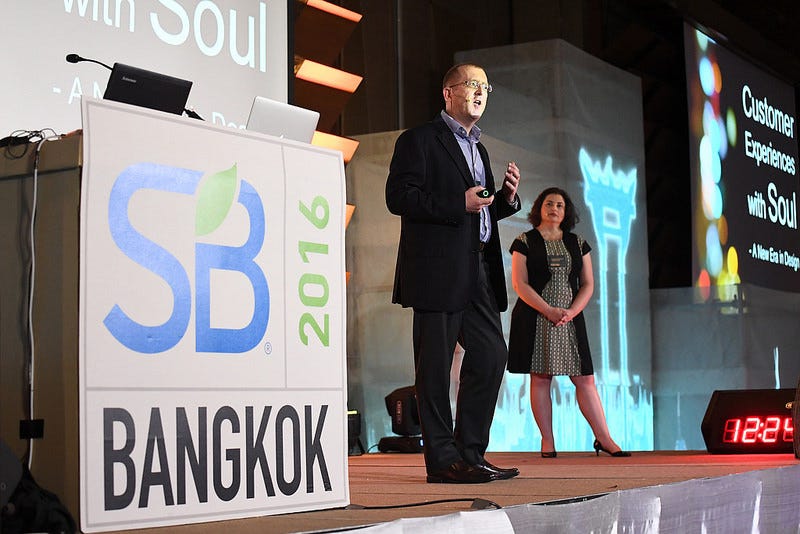06 May It’s time to rethink businesses : the Holonomics Approach
Much has been written about the increasingly urgent need for radical approaches to business, leadership, social change, and economics. The challenge now is how to encourage those in business and beyond to embrace an ecological perspective where intrinsic and extrinsic dimensions of complex systems are understood.
One of the most important pillars within the Holonomics approach is a concept called ’the dynamics of seeing’.
The reason is that within general business practice there is an implicit assumption that the world ‘out there’ is a given and that people simply have different opinions about it.
A second important dimension to the Holonomics approach is the expanded interpretation of sustainability, which is defined as the quality of our relationships. This is much wider than more typical definitions of sustainability, because it allows businesses to understand how they can better prepare for the volatile, uncertain, complex and ambiguous reality we now live in.
When the leaders of an organisation fully sign up to this way of understanding sustainability, they are then able to transform their businesses through the redesign and rethinking of one of the most fundamental relationships they have, that which exists between a company and its customers.
Yesterday, I had a great opportunity to interview the founders of Holonomics and hear all about their inspiring actions and innovative thinking about how businesses, organisations, leaders and entrepreneurs can use the principles of the Holonomics Approach.
Read more about this inspirational meeting here.

Maria, Simon Can you please define Holonomics in 3 or 4 words?
Taking organisations to higher ground!
How businesses, organisations, leaders, entrepreneurs can use the principle of Holonomics?
The principles of Holonomics were created to help businesses and organisations transform, and as we put it, reach higher ground. We created our Holonomics approach because we believe that transformation must be built on solid foundations. So we work with leaders and entrepreneurs to help them develop a deep understanding of what is and isn’t working, and why — enabling them to achieve higher impact results.

Our consultancy work is based on our approach to organisational change which we describe in our book “Holonomics: Business Where People and Planet Matter”, which consists of next-generation business models, systems thinking, expanding people’s consciousness and their way of seeing their organisations and the wider context and universal human values.
Our approach reveals the important interplay between each part of an organisation, enabling leaders and entrepreneurs to pinpoint and address those areas that are hindering their evolution, development and success.
How can Holonomics respond to the actual pandemic crisis?
The crisis is showing to us the need to develop new ways of collaborating, better understand our environment and the changing needs of clients, customers, stakeholders and our communities, and understand how we can better work with technological solutions in relation to how we organise our work and personal lives so that we can help bring into being a more flourishing way of living and working productively.
In relation to the current crisis, given that the Holonomics approach is based on understanding whole systems, it can be applied in organisations who are facing complex and wide-ranging challenges. So our approach helps people and organisations to deal and respond to crises in new ways which helps them to act as a coherent and resilient whole.
What do you think about the actual paradigm shift? Is Holonomics a sustainable approach?
We see this current moment as very special, because it is leading people and organisations to ask new questions as they look for new ways to live collectively and rethink our concept of economics.
We created our approach exactly to help leaders and change makers learn how to be prepared and how to respond to the challenges we are facing based on a structured approach for implementing the long-term transformations and changes needed.
Can we build sustainable ecosystems and answers?
We absolutely believe that it is possible to build sustainable ecosystems, but these are often much more difficult to develop than many people imagine. The reason is that any ecosystem has to be based on human values, and you also have to think about how meaning flows and how each part can express the whole while maintaining their individual identity.
We has just announced the launch of a new ecosystem which we refer to as the Deep Tech Network. This has a strong working nucleus composed of Holonomics, 1STi which is a deep tech consultancy developing advanced complex and scalable architectures, platforms and applications and Vai na Web which is a social project helping teenagers from disadvantaged backgrounds, providing them with a support structure to teach them how to become creative designers and coders.
So you can think of this particular ecosystem as composing of the following four aspects — deep tech, deep thinking, deep talent and deep collaboration. However, we do not believe that we have all of the answers.
We have also created the Deep Tech Talks which brings business leaders and entrepreneurs together with activists, change makers and artists to explore deep tech from many different perspectives — art, technology, philosophy and business. And we have also launched a podcast where we also explore these questions in depth, allowing us to evolve the ecosystem and in an authentic and organic manner.
What form of social impact could this approach bring?
The Holonomics approach is systemic, and so for example with Vai na Web we are developing new ways to think about social impact, one of which is Social Impact as a Service. Not-for-profit initiatives often struggle to become sustainable financially when they have to rely purely on donations alone.
With Social Impact as a Service, we have large organisations looking to fulfil a pressing need for technologically talented people, while at the same time helping students and young tech professionals who have not come from traditional academic backgrounds or had access to educational resources.
Social Impact as a Service allows businesses, brands and organisations to develop authentic social impact programmes which can have a long-lasting impact which itself becomes a virtuous circle, taking people out of poverty and crime and allowing them to have fulfilling and dignified careers.
About Maria Moraes Robinson and Simon Robinson

Maria is a Brazilian consultant and economist who has a background in strategy execution and human values in organisations.
Simon is a British consultant and customer experience expert with a background in product and service design.
“Together we have pioneered developments in our respective fields of strategy, management and customer experience and innovation as well as our philosophical and academic knowledge of human values, consciousness, systems thinking and hermeneutics, bringing this experience to create a new approach to business transformation.
We are co-authors of Holonomics: Business Where People and Planet Matter, and Customer Experiences with Soul: A New Era in Design”.
About Holonomics
Holonomics is a business consultancy enabling organisations to achieve high-impact transformation in the areas of strategy, customer experience, deep tech and culture. Every single intervention we make within an organisation has human values as its basis. This means that communication between leaders and their team members, at every level, becomes coherent, authentic and effective.
Usefull Links:
- Holonomics: www.holonomics.co.uk
- Transition Consciousness: www.transitionconsciousness.org
- Instagram: https://www.instagram.com/holonomics/
- Twitter: https://twitter.com/HolonomicsLtd
